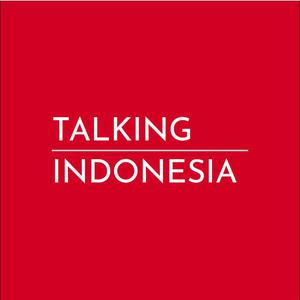Vannessa Hearman - East Timor's Great Famine, 1977-1979
Vannessa Hearman - East Timor’s Great Famine, 1977-1979
Following Indonesia’s annexation of East Timor in December 1975, the forced displacement and mass starvation of its people resulted in what is known as the Great East Timor Famine, 1977-1979. As Indonesian forces moved into the province thousands of people were forced to flee their villages and farms into the mountains and bush, where food sources were scarce. It is estimated that over fifty percent of East Timor’s population of 600,000 was displaced. A report complied by the East Timor Truth, Reception and Reconciliation Commission (CAVR) concluded that at least 84,000 people, but possibly up to 180,000, died in the famine. As such this tragedy touched one in two East Timorese. Indonesia’s restrictions on the media and its own propaganda, meant that there was little open reporting on the tragedy as it unfolded.
More than two decades since East Timorese voted for independence from Indonesia the truth and associated trauma of this conflict-induced famine remains little known.
What was the context in which this famine took place? How did it unfold and what was the scale of the suffering of the East Timorese? What media reporting, if any, was there at the time, and what was the international community’s response? And how is the famine remembered in East Timor today and what is being done to bring justice for its victims?
In this week's episode Jemma chats with Dr Vannessa Hearman, a senior lecturer in history at Curtin University in Western Australia. Her award-winning monograph, Unmarked Graves: Death and Survival in the Anti-Communist Violence in East Java, Indonesia, is a study of the 1965-66 mass violence in Indonesia. Her research deals with the history and politics of Indonesia and Timor-Leste and Australia's engagements with both countries. She is researching the history of East Timorese migration to Australia and how Australian cultural institutions reflect this history in their collections. Her recent publications on East Timor’s famine include, ‘Australian News Photography and Contested Images of Indonesian-Occupied East Timor’, Australian Historical Studies, (2003) 54:3; and ‘Challenges in the pursuit of justice for East Timor’s Great Famine (1977-1979), Third World Quarterly (2024), 45:2. Also see Pat Walsh’s writings on the famine and the fate of the CAVR report Chega!.
In 2024, the Talking Indonesia podcast is co-hosted by Dr Jemma Purdey from the Australia-Indonesia Centre, Dr Jacqui Baker from Murdoch University, Dr Elisabeth Kramer from the University of New South Wales and Tito Ambyo from RMIT.
Image: A Peter Rodgers photograph denoting forced displacement, surrender and famine on display at the CNC as part of an exhibition on the history of Timor-Leste’s independence struggle.
Source: Raimundo Fraga, CNC.
5 December 2024, 12:00 am
